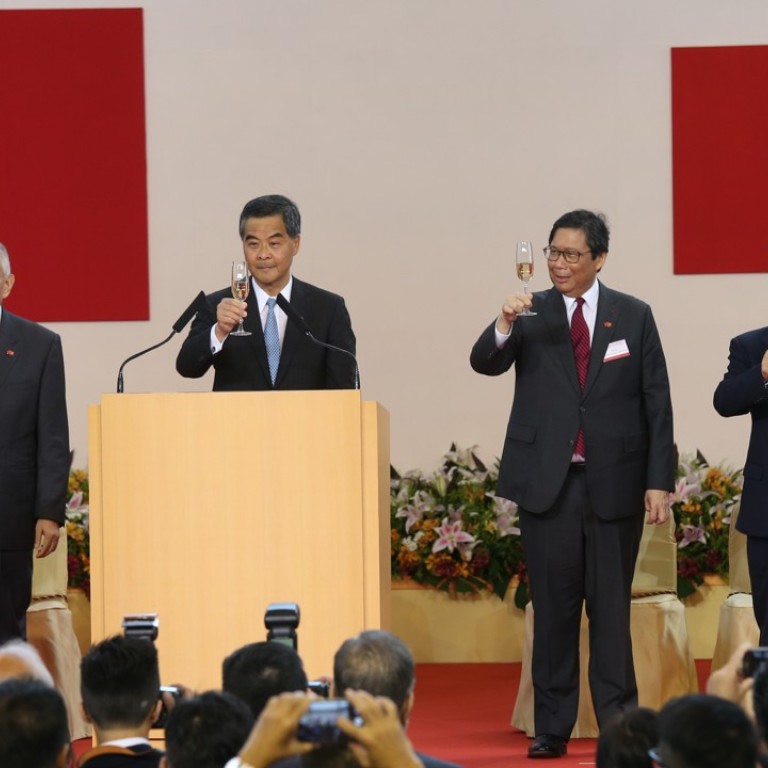
Three policy steps that can help Carrie Lam as chief executive heal a divided Hong Kong
Raymond Yiu and Paul Yip say channelling public spending to help create a knowledge-based society, along with a stable policy environment and respect for public opinion, would help the new administration usher in a better future
In his foreword to the book Feeling the stones: Reminiscences, by David Akers-Jones, former Hong Kong governor Lord Wilson wrote: “Allowing vigour, determination and the urge to better one’s lot to take a productive course is a key attribute of good government.” In the past 20 years, how effective have our government policies been in empowering the people?
Inheriting the colonial legacy, Hong Kong adopted the approach of a “limited government”, with conservative goals on the economy and efficiency. In the last 12 budgets of the colonial government, the ratio of public expenditure to GDP was 15.7 per cent. After the handover, the ratio was 20.1 per cent under Tung Chee-hwa and Leung Chun-ying, and 18.1 per cent under Donald Tsang Yam-kuen. Although more money was spent in the post-handover era, less satisfaction was to be found in the community.
Leung Chun-ying steps down as leader of a bitterly divided Hong Kong
Social welfare and health were among the top priorities of the three chief executives since 1997. Education received relatively more resources during the terms of Tung and Tsang, while Leung invested more in infrastructure. Public resources allocation reflects policy priorities. At the same time, any effective government has to nurture and build self-reliance. To cope with future challenges, we suggest the following.
Who benefits from the HK$5 billion pledged by Carrie Lam for Hong Kong’s education sector?
The strategy “to revitalise the nation through science and education” since the mid-1990s is a good lesson for us, and impressive technological developments in Shenzhen are a wake-up call.

The sudden withdrawal of land sales and the reduction in the supply of public housing following the Asian financial crisis have been shown to be a major factor leading to the current housing shortage. From historical experience, an incremental approach to public budgeting could provide a stable policy environment.
How Hong Kong’s public housing policy shuts out needed skills, talent
Third, effective methods should be devised to regularly gauge citizens’ rating of government performance in different policy areas. The government needs to rethink the engagement process, especially with young people. Any discrepancy between policy priorities and society’s evolving needs should be monitored, and remedial measures implemented.
Various stakeholders in society could be better informed with evidence-based and objective analysis of public budgetary data.
Let’s give the incoming team a chance to do their job. Successful implementation of “one country, two systems” and improved livelihoods can only be achieved if each of us behaves responsibly and discharges our duties diligently.
Raymond Yiu has engaged in public policy research for several years, and currently studies at the Crawford School of Public Policy, Australian National University. Paul Yip is chair professor in the Department of Social Work and Social Administration at the University of Hong Kong

